WASHINGTON, D.C. — The Department of Justice and the Bureau of Alcohol, Tobacco, Firearms and Explosives announced on April 7, 2025, the repeal of the Zero Tolerance Policy related to FFL inspections, the review of the stabilizing braces rule, and review of the rule regarding “engaging in the business” of firearms dealing.
The Zero Tolerance Policy, formally called the Enhanced Regulatory Enforcement Policy and repealed today, was announced in 2021. The Biden-era “zero-tolerance” policy punished lawful and highly-regulated Federal Firearm Licensees (FFLs) for minor clerical errors.
“This Department of Justice believes that the 2nd Amendment is not a second-class right,” said U.S. Attorney General Pamela Bondi. “The prior administration’s ‘Zero Tolerance’ policy unfairly targeted law-abiding gun owners and created an undue burden on Americans seeking to exercise their constitutional right to bear arms – it ends today.”
“Today’s repeal of the Zero Tolerance Policy and the comprehensive review of stabilizing brace regulations and the definition of ‘engaged in the business’ marks a pivotal step toward restoring fairness and clarity in firearms regulation,” said Acting ATF Director Kash Patel. “We are committed to working with all stakeholders to ensure our policies are balanced, constitutional and protective of Americans’ Second Amendment rights.”
“NSSF applauds today’s announcement by the DOJ and ATF that the Biden-era ‘zero-tolerance’ policy is being eliminated,” said Lawrence G. Keane, NSSF Senior Vice President and General Counsel. “The Biden administration purposefully suffocated the firearm industry at every opportunity and no policy was more damaging than its so-called ‘zero-tolerance’ policy. This reckless policy throttled small businesses and drove many to shut down by threatening crippling administrative costs to fight against penalties for minor errors and infractions that were previously reconciled in good faith between ATF officials and law-abiding firearm retailers.”
According to the NSSF, during the Biden administration, ATF revoked ever-increasing numbers of FFL licenses each year. In addition, reports indicate that numerous FFLs voluntarily surrendered their licenses rather than endure the costly and painstaking process of clearing their name for minor infractions.
Gun Owners of America filed two federal lawsuits over the now-repealed “zero tolerance” rule: Kiloton Tactical v. ATF and Morehouse Enterprises, LLC v. ATF (II). Erich Pratt, senior vice president of Gun Owners of America, said, “For years, the Zero Tolerance Policy has been a tool of political retribution—targeting gun stores and Americans who were simply trying to exercise their rights.”
In response to today’s announcement, Firearms Policy Coalition President Brandon Combs said, “On behalf of our members, we commend and thank President [Donald] Trump, Attorney General [Pam] Bondi, and ATF Director [Kash] Patel for taking these important actions to protect constitutional rights and repeal the misguided ‘Zero Tolerance Policy’ implemented by their predecessors.”
According to the ATF statement, DOJ and ATF also plan to revisit the regulatory framework surrounding stabilizing braces (Final Rule 2021R-08F) and the definition of “engaged in the business” of firearms dealing (Final Rule 2022R-17F).
The ATF statement said, “The decision to review the Stabilizing Brace rule, which sought to reclassify certain firearms as short-barreled rifles, as well as revising the guidelines for determining who is considered ‘engaged in the business’ of selling firearms, reiterates constitutional approaches to firearm regulations.” Both of those Final Rules have been enjoined by federal courts.
NSSF General Counsel Keane said the Biden-era “Engaged in the Business” Final Rule redefined that individuals privately selling firearms were to be considered in the business of selling firearms, requiring nearly any individual selling more than one firearm to obtain a federal firearms license (FFL). Keane said this action was designed by the Biden ATF to move the United States closer towards universal background checks, which have repeatedly been rejected by Congress. NSSF is pleased to learn of this consideration.
FPC President Combs said, “We also look forward to collaborating with ATF and DOJ leadership on the deregulation of stabilizing braces and revisiting the ‘engaged in the business’ rule regarding lawful firearms commerce, two policies that were weaponized by the previous administration against the firearms community.”
“Additionally, NSSF is glad to learn that the ATF rule on stabilizing arm braces is also under review,” Keane added. “The Biden-era ATF published this errant rule after determining for years that stabilizing arm braces attached to a pistol did not alter the classification of the firearm and instead decided these lawfully-sold pistols would now be regulated as short-barreled rifles [SBRs], turning tens of millions of Americans into felons overnight. Exercising the Second Amendment is not possible without the firearm industry and this announcement by the DOJ and ATF today should truly be celebrated.”


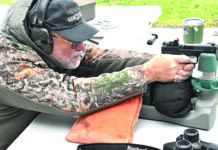
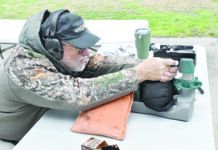
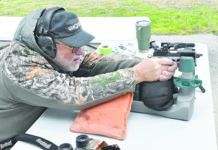





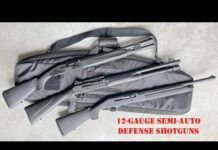



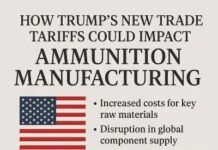
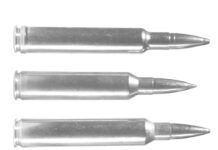



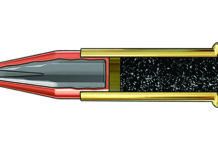





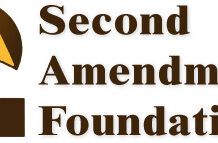


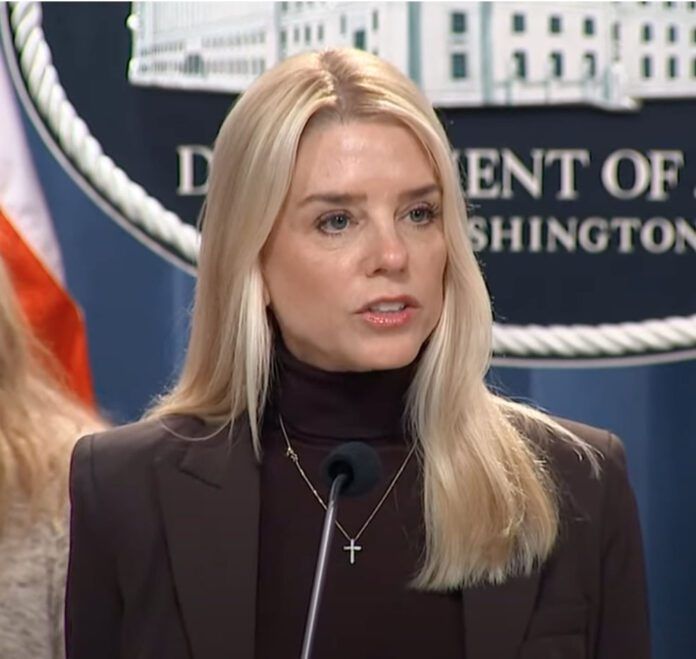

3lm4vf